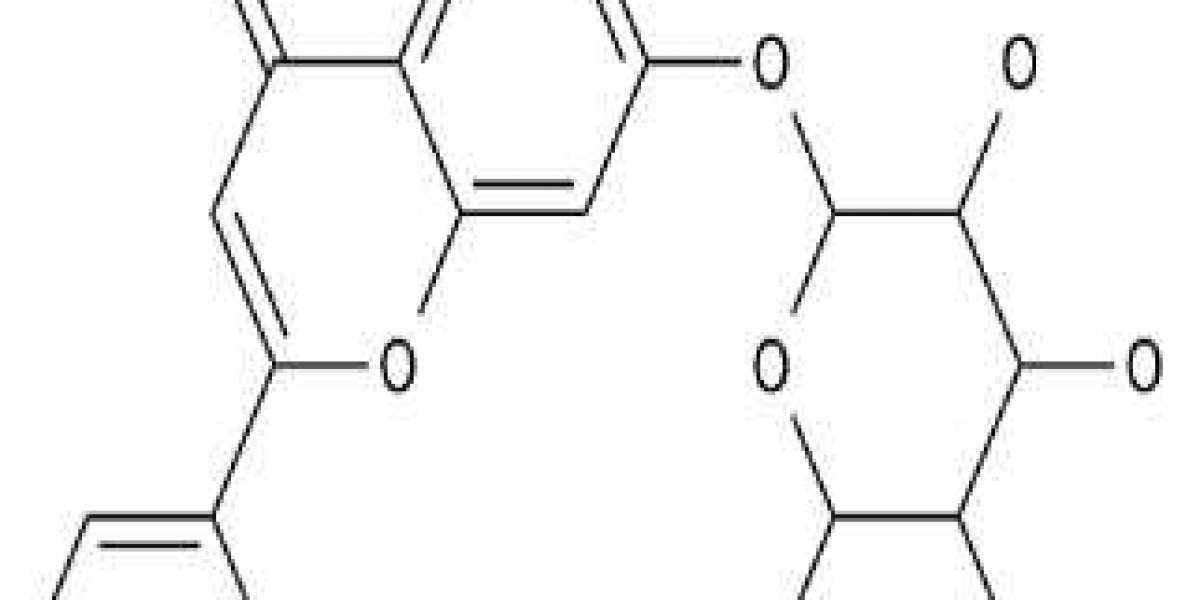In recent years, with the extensive research and gradual deepening of researchers' understanding of baicalin, it is believed that baicalin has various effects in clearing oxygen free radicals, relieving fever and pain, anti-inflammatory, inhibiting neovascularization, anti-tumor, antibacterial and antiviral effects.
Baicalein is a flavonoid monomer compound isolated from the dried roots of traditional Chinese medicine Scutellaria baicalensis and is the main pharmacological substance basis of Scutellaria baicalensis. In recent years, with the extensive research and gradual deepening of researchers' understanding of baicalin, it is believed that baicalin has various effects in clearing oxygen free radicals, relieving fever and pain, anti-inflammatory, inhibiting neovascularization, anti-tumor, antibacterial and antiviral effects.
1. Analgesic, antipyretic, and anti-inflammatory effects
Baicalin can interfere with NF- κ B. MAPK and other signaling pathways inhibit the activity of nuclear factors and the secretion and release of inflammatory factors to exert analgesic, antipyretic, and anti-inflammatory effects. Baicalin inhibits the invasion of macrophages and lymphocytes by blocking signaling pathways, significantly reducing the pro-inflammatory factor TNF- α、 IL-1 β mRNA expression of monocyte chemotactic proteins. Using LPS to induce the formation of an inflammatory model in RAW264.7 cells, the anti-inflammatory mechanism of baicalin was studied. It was found that baicalin inhibits the metabolism of arachidonic acid and the production of its metabolites by inhibiting the expression of the COX-2 gene, preventing the binding of C/EBPb with DNA. Baicalin can significantly reduce the damage of LPS-induced mastitis to the body, and its mechanism is to block the expression of TLR4 receptor, thereby inhibiting NF- κ B-pathway, reducing TNF- α And IL-1 β The activity of inflammatory factors. Baicalin can also inhibit IL-6 and TNF by α To reduce the ascitic fluid content of a severe acute pancreatitis rat model, prevent pancreatic injury, and improve its survival rate. In addition, in a rabbit model of phlebitis caused by the chemotherapy drug vinorelbine (VRB), baicalin can significantly reduce endothelial cell loss, edema, inflammatory cell infiltration, and thrombosis, and lower serum TNF- α, IL-1 β, IL-6 and ICAM-1 levels. In vitro experiments have shown that baicalin can reduce VRB-induced endothelial cell apoptosis, reduce intracellular ROS levels, inhibit p38 phosphorylation, and ultimately inhibit NF- κ Activation of the B signaling pathway. The results indicate that baicalin can inhibit intracellular ROS production and p38/NF- κ The inactivation of the B pathway plays a protective role in VRB-induced endothelial damage and reduces the production of pro-inflammatory cytokines in a rabbit model of intravenous injection.
Search
Popular Posts
-
 Üsküdar petek temizligi
Üsküdar petek temizligi
-
The Very Best Postpartum Shapewear for Comfortable and Effective Support and Gentle Compression
-
 Квартиры на сутки Минск, снять квартиру в Минске на сутки
By worksale
Квартиры на сутки Минск, снять квартиру в Минске на сутки
By worksale -
 Super8et Situs Judi Slot Online Terbesar
Super8et Situs Judi Slot Online Terbesar
-
 Pro Bhagavad Gita 700 Slokas Mp3 64bit Crack Key Free Pc __HOT__
By hidistligamb
Pro Bhagavad Gita 700 Slokas Mp3 64bit Crack Key Free Pc __HOT__
By hidistligamb

